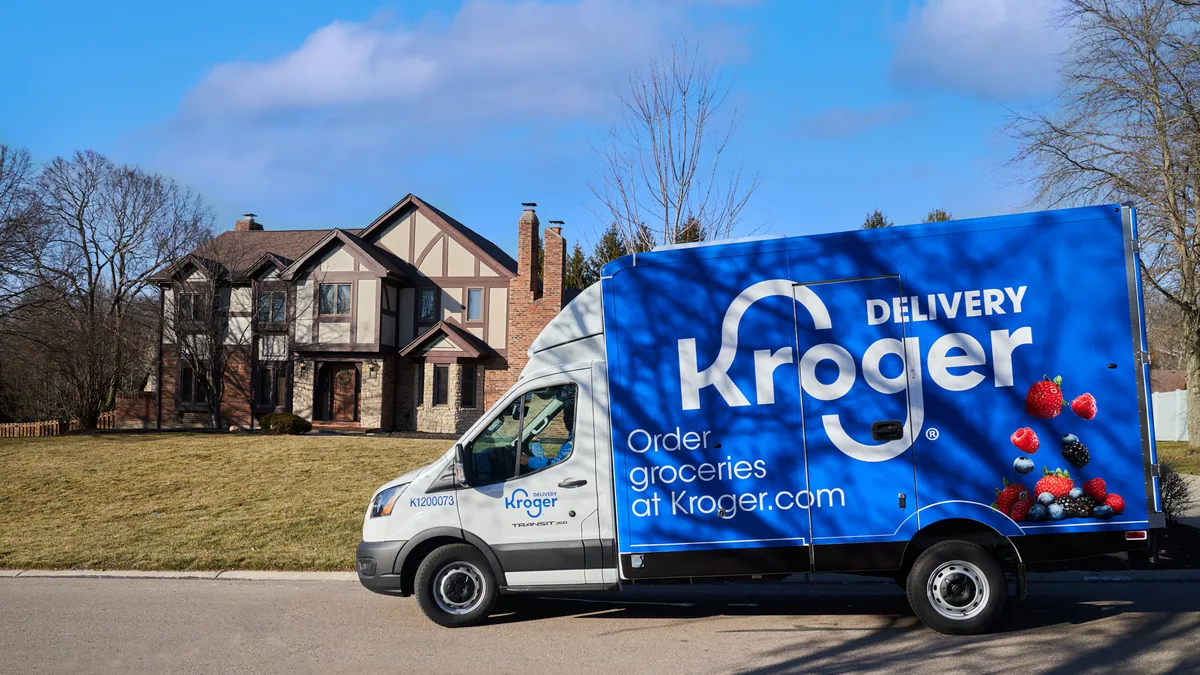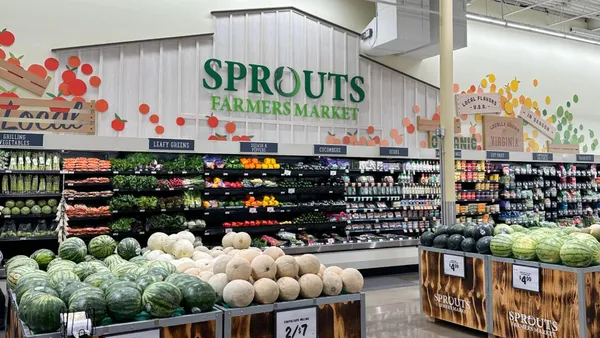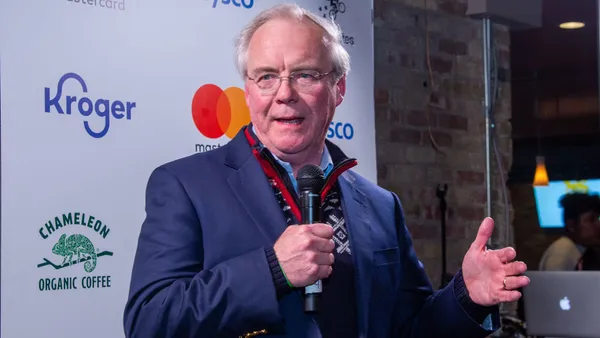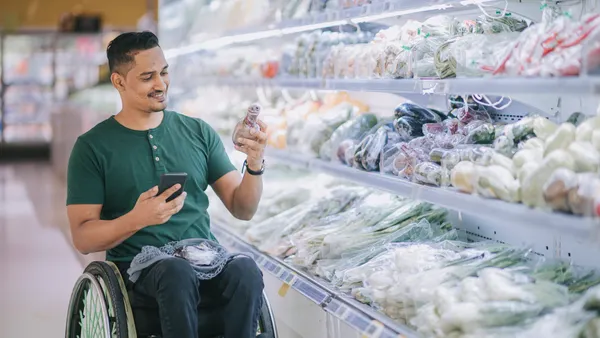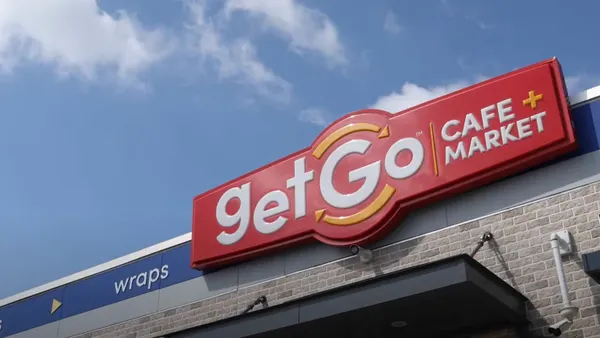Dive Brief:
- Kroger saw identical-store and overall sales decline during the first quarter of 2021 compared with the same period in 2020, the supermarket chain announced Thursday. Same-store sales excluding fuel fell 4.1% during Q1, which ended May 22, while overall sales came in at $41.3 billion, down slightly from $41.5 billion during the first quarter of 2020.
- The retailer's same-store sales were up 14.9% in Q1 compared with the first quarter of 2019, and digital sales grew 108% over that period.
- Kroger joins other grocers that also have seen their results turn negative as they begin comparing their operations in 2021 with the extraordinary sales jump the industry recorded at the start of the pandemic.
Dive Insight:
While Kroger has seen its sales lose some steam as the COVID-19 crisis diminishes, the company remains in a strong position to benefit from shifts in consumer behavior brought on by the public health crisis.
"Our customers have changed because of COVID," Chairman and CEO Rodney McMullen said during an earnings call Thursday morning, noting that Kroger has seen pandemic trends continue among consumers, like sustained at-home cooking, more premium product purchases and heightened digital engagement. However, as pandemic restrictions lift, Kroger is seeing more frequent purchases by shoppers, McMullen said.
The company is especially pleased with its online operations, which rose 16% year-over-year in Q1 even as sales went down, according to McMullen.
Kroger plans to double its digital business in the coming years, McMullen said, noting that few customers exclusively shop online, but most shop both online and at stores. "Our retention rate is incredibly high, and our ability to gain share within that household is very high as well," McMullen said.
Kroger expanded its pickup capacity by 15% during Q1 and now offers the service at 2,233 locations, according to the earnings release. The company expanded its delivery service to 2,488 locations during the quarter.
Kroger also said it has raised its expectations for 2021 based on its performance in the quarter. The company now expects identical sales to decline between 2.5% and 4% year-over-year, and rise between 10.1% and 11.6% compared with 2019.
In addition, the company's alternative profit business, which includes a media unit that handles advertising for third-party customers, sales of personal finance products and services, and data-analysis operations, hit a record during Q1. "Exceptional" growth in retail media led the alternative profits during the quarter, Chief Financial Officer Gary Millerchip said.
Kroger's private label business also picked up momentum in Q1. The grocer said in its earnings release that it added 253 items to its portfolio of house brands during the period, including seasonal fresh produce and products related to summer cooking. In addition, Kroger has seen strong sales of premium products under its Private Selection and Simple Truth brands as people cooked at home, McMullen said.
Those brands "continue to really have strong, strong quarters year on year and actually had, for the most part, positive sales growth even cycling last year, and we think it really is part of that premiumization of product," he said.
"Because we had our own manufacturing plants and we were able to ramp up production and it was dedicated to us, we were able to significantly gain share last year just because we had product and many of our CPG partners did not," McMullen added.
Kroger, which like other retailers is facing challenges in attracting new workers, said in its earnings release that the chainwide hiring event it held on June 10 pushed the flow of applicants up by 37%. The company's average hourly wage is on track to surpass $16, and will approach $21 by the end of 2021 when benefits are taken into account, McMullen said during the earnings call.




